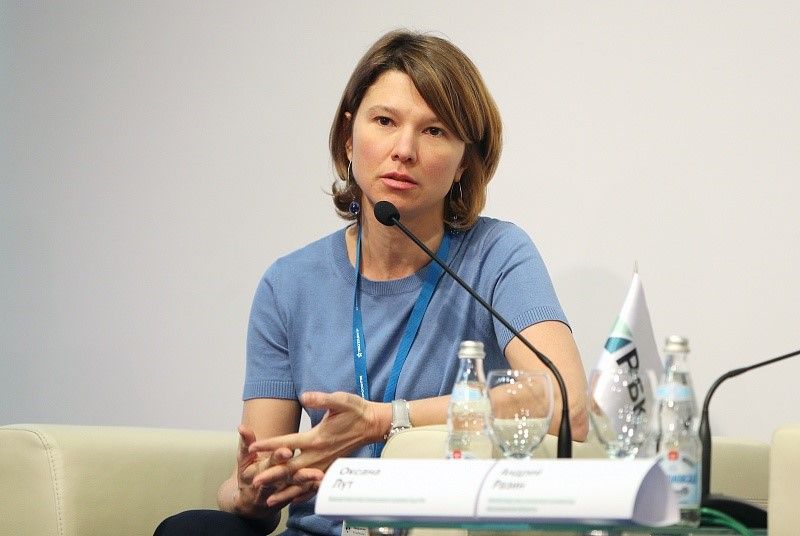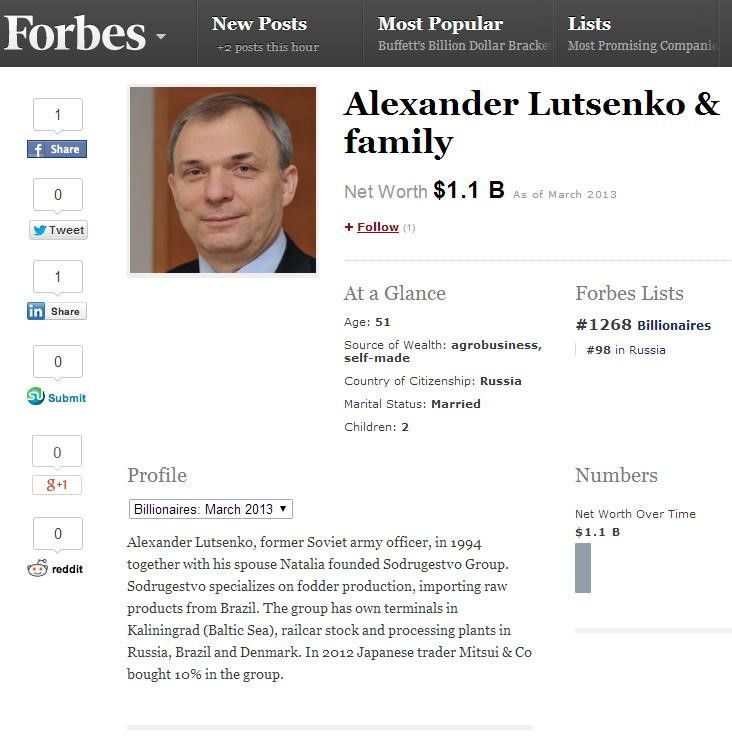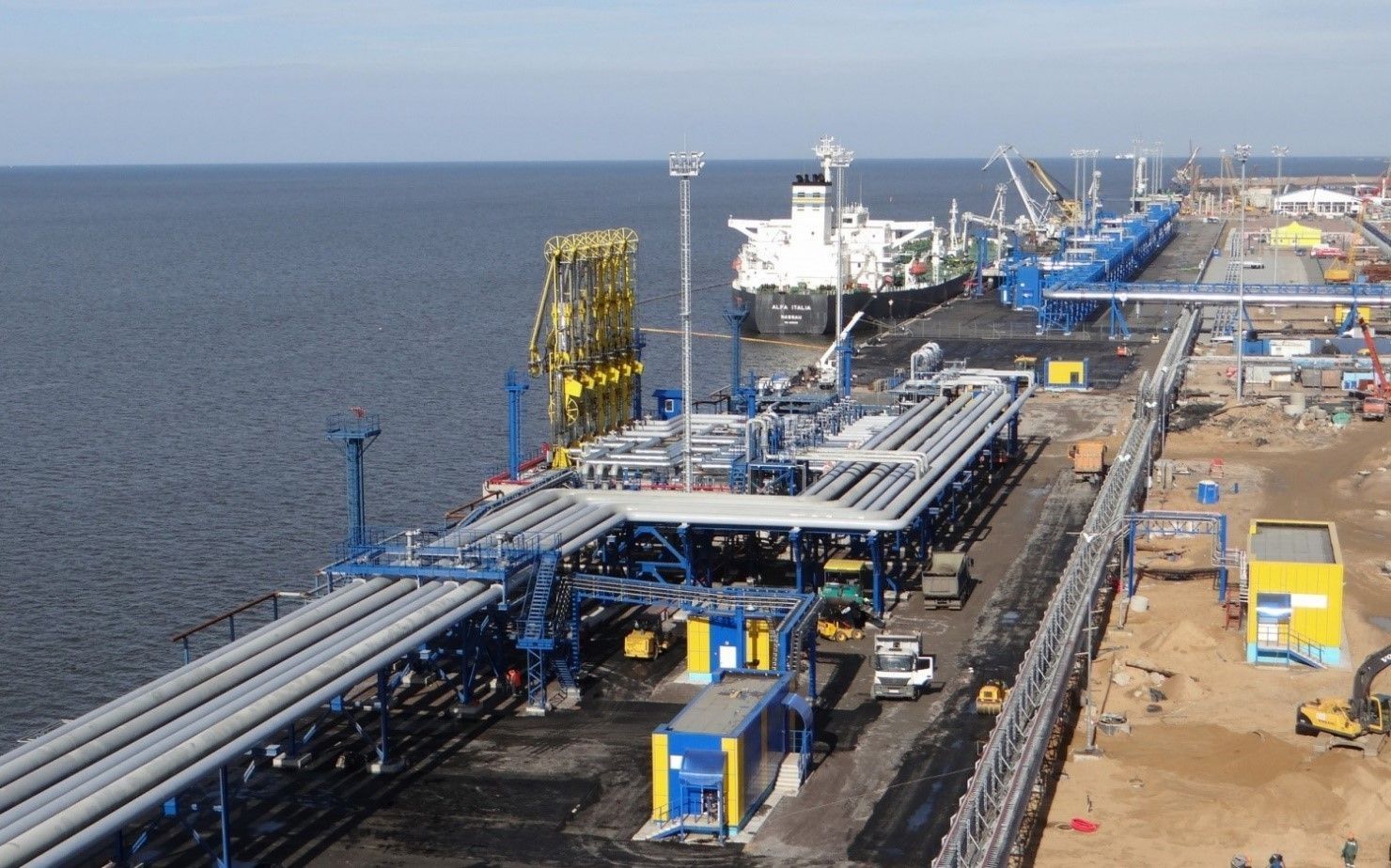Alexander Lutsenko's Sodruzhestvo GC can turn around in the "patrimony" of the authoritative businessman Ilya Traber. Could they be "brought together" by the Deputy Minister of Agriculture Oksana Luth, whom detractors suspected of lobbying the business interests of Sodruzhestvo?
According to The Sankt-Peterburg Post, the Leningrad region authorities have prepared alternative areas instead of the territory of Batareynaya Bay, where activists oppose the new infrastructure, for Sodruzhestvo of Alexander and Natalia Lutsenko, an investor in the construction of a grain terminal in the Baltic Sea. It is likely that the company can get a plot of land near the Primorsk ULC of an odious entrepreneur Ilya Traber, who, according to rumours, may control the ports of the Leningrad region. It is believed that the latter is close to the previous and current governor of the region. The interests of Sodruzhestvo can also be lobbied by the Deputy Minister of Agriculture Oksana Luth, who previously worked at the Russian Agricultural Bank under the current Minister Dmitry Patrushev. Just recently, the latter, together with the head of the Leningrad region, Alexander Drozdenko, held a meeting at which they discussed the prospects for the development of the agro-industrial complex of the region. During it, the decision was made to "bring together" Lutsenko and Traber?
Back in the spring of last year, the Russian government leased a plot of land in the Lomonosovsky District of the Leningrad Region for 10 years for the construction of a grain terminal to the Baltic Grain Terminal company, part of the Sodruzhestvo GC. The organization planned to build a production and logistics complex, the total investment was estimated at 35 billion rubles.
However, a wave of unauthorized protests by local activists began very quickly: the fact is that Batareynaya Bay remains one of the cleanest areas of the Gulf of Finland coast and is in demand among vacationers. In addition, the place where the complex was supposed to be built is located 13 km from the railway, so it would have been necessary to lay more tracks, and therefore destroy the forests. As a result, in the summer of 2020, the construction permit for the project was approved.
But it did not work out - as the Club of Regions writes, in December, public figures noticed that the investor had started the survey work the day before. Eco-activists then expressed the opinion that the revocation of the permit was nothing more than a PR move by Alexander Drozdenko to secure his re-election in the autumn elections. It was rumoured that the structure of Sodruzhestvo continued to work with the consent of the regional leadership.
Apparently, the unexpectedly large attention to this topic forced the authorities to look for a less controversial place. It is known that the investor has been offered for consideration several sites in Ust-Luga so far, where one of the major investment projects for the development of infrastructure in the North-West is located. This list also includes the ports of Vysotsk and Primorsk. In the area of the latter, in 2022, the first stage of the Primorsk ULC project will be commissioned, controlled by the scandalous businessman Ilya Traber, who, according to rumours, can "hold" almost all the ports of the region. Does it mean that Lutsenko will now work under the latter?
Got success
The Sodruzhestvo Group of Companies, founded in 1994, is one of the largest processors of oilseeds in the CIS and Europe. In particular, it is engaged in the production of soybean and rapeseed oil and oil meal, lecithin, soy flour. Until recently, according to the information of 47news, the parent company of the group was registered in the Netherlands, but then changed the "registration" to the Kaliningrad region. And then it began to receive preferences from the government: in addition to the Batareynaya bay, the company transferred another 37 thousand square metres in Svetloye to expand production.
Now the company is a monopolist in the export of sunflower, rapeseed and soy. It is rumoured that Oksana Luth, the Deputy Minister of Agriculture, had a hand in the success of the company. The fact is that thanks to her, in 2019, the Union of Grain Exporters was established, which, according to rumours, was created to promote the interests of certain companies - Aston, RIF and Sodruzhestvo. And in April-June 2020, a ban on the export of sunflower, rapeseed, and soybeans was introduced. As a result, according to Davydov.Index, ships were stopped in the ports, the contracts of all suppliers were disrupted, except for the Sodruzhestvo GC, whose ships were allowed to go on the personal order of Luth.
The good relationship between the Deputy Minister and the company is evidenced by the fact that Ms. Luth was present at the groundbreaking ceremony of the future Sodruzhestvo plant in the Kursk region, which will be the first soy processing plant in the region. By the way, this project is being built with the support of Russian Agricultural Bank, as stated in the official пpress-release of the bank. The Deputy Minister and her boss are native of this structure.

Oksana Luth
All this suggests that the "ties" between the agro-industrialists Lutsenko and Luth were established long ago. And, given the rumours that the Deputy Minister may lobby for the interests of certain agricultural enterprises, there is an idea that they include Sodruzhestvo. Previously, this was described in detail by The Moscow Post.
It is worth noting that both in the Russian Agricultural Bank and in the Ministry of Agriculture, Luth works under Dmitry Patrushev. Does he know what his subordinate is doing? There is reason to believe that he himself can "push" the interests of certain groups. So, in this context, his autumn visit to the Leningrad region should be recalled, where he and the Head of the region, Alexander Drozdenko, discussed the current situation and promising directions for the development of the agro-industrial complex of the region, as well as issues of state support for agricultural producers, as told by DairyNews. Could he have "asked" for Sodruzhestvo during this meeting?
The beneficiaries of Sodruzhestvo are the spouses Natalia and Alexander Lutsenko. The latter was twice included in the Forbes global list (in 2013 and 2015), his wife was on the 10th line of the Forbes rating "25 richest women in Russia" in 2018. According to the rating of the publication for 2020, the state of Alexander Lutsenko and his family is estimated at $800 million, the businessman occupies the 119th line of the rating of the richest businessmen in Russia.

In the media, he is openly called the "soy king", and his "kingdom" goes far beyond the borders of Russia. The company also owns oil extraction plants and storage infrastructure in Brazil, Denmark and Turkey, and river terminals in Paraguay.
Despite the presence of such a global business and solid capital, Lutsenko remains a non-public person - there is not much information about him in open sources. However, it is known that in 2014, its structure became the object of prosecution by the Danish tax authorities on suspicion of billion-dollar withdrawal of funds, as Interfax-West writes. Two of the businessman's companies, United Trading and Scanmills, were then subjected to a tax audit. For many years, the United Trading company in Kolding, the most important hub of the Baltic port, was used by Alexander Lutsenko as a holding company, and then was almost ruined.
However, that story for Lutsenko practically turned into nothing. Experts then explained this by the fact that the Sodruzhestvo Corporation has a complicated structure – shares and companies can be bought and sold endlessly within the system. And in this state of affairs, it is very easy to hide the "ends in the water".
"Antique Dealer" of Port
If this is true, then Mr. Lutsenko will certainly find a common language with Ilya Traber, who also prefers not to "be spotted" once again. In particular, earlier The Moscow Post told in detail how he can do business through proxies, as well as relatives of the former Governor of the Leningrad region Valery Serdyukov and the current Head of the region Alexander Drozdenko.
Detractors call Tramber none other than a "night governor" of the Leningrad region. Presumably, his friends from the criminal world can help him establish connections - according to rumours, he was connected with the Tambov organized criminal group and was well acquainted with its leader, the notorious Vladimir Kumarin (Barsukov), and even in certain circles was known by the nickname "Antikvar" (Antique Dealer). According to Delovoy Peterburg, he may have lived in Greece for a long time.
As for the Leningrad region, he shows a big interest in port assets. So, he controls the Primorsk ULC, he could be (or still continues to be) associated with the Ust-Luzhskaya PTK. We can recall the recent story of the loud "entering" of Traber to JSC Commercial Sea Port of Ust-Luga. As 47news, the figure of Traber is behind the company that bought out the debts of Valery Izrailit. By the way, these debts could force Izrailit to sell it, because in 2016 he was arrested - he was suspected of particularly large fraud, embezzlement and transfer abroad of more than 300 million rubles. However, in March 2020, after his shares were transferred to structures allegedly associated with Traber, he was suddenly released. This was written by 47news.

Could the sea port of Ust-Luga go to Traber?
By the way, this whole story with Izrailit happened after Traber gained control of the Ust-Luga Yug-2 terminal before 2016.
It seems that Mr. Lutsenko should pay attention to all the gossip and stories that surround Mr. Traber, because he may well have to work closely with him. Their acquaintance could be ensured at the level of the leadership of the Ministry of Agriculture. Will the patrons help them run their business from the "shadows", as these businessmen seem to enjoy?


.jpg?v1616657397)
.jpg?v1616657397)